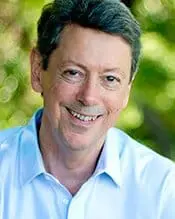As a practicing therapist today, it’s easy to succumb to the allure of brain science, says neuropsychologist and author Rick Hanson. Mirror neurons, the amygdala, and hormones have all been labeled culprits for behavioral shortcomings at the expense of more ground-level investigation into our clients’ thoughts and feelings.
But that doesn’t mean brain science doesn’t have something to teach us, Hanson says. “Inner strengths are built out of brain structure,” he explains. In the following video, he shares why, to develop these strengths, we need to manage the “two wolves” in our heart—one of love, and one of hate.
“A child comes to feels securely attached by repeatedly internalizing experiences of feeling seen, valued, and cherished,” Hanson explains. “An adult grows compassion by installing empathy, kindness, and warm-heartedness.” In this way, he adds, we can not only cultivate inner strengths in ourselves, but in others too.
“People come to a therapist because they want something to change,” Hanson says. “They want to feel or act differently, understand themselves or others better, or relate to things that won’t change in a more spacious and accepting way. These changes of mind, of course, require changes of brain.”
Rick Hanson
Rick Hanson, PhD, is a psychologist, a Senior Fellow of the Greater Good Science Center at UC Berkley, and a New York Times best-selling author. His books are available in 26 languages and include Hardwiring Happiness (Harmony, 2016), Buddha’s Brain (New Harbinger, 2009), Just One Thing Card Deck (PESI, 2018), and Mother Nurture (Penguin, 2002). He edits the Wise Brain Bulletin and has numerous audio programs.












